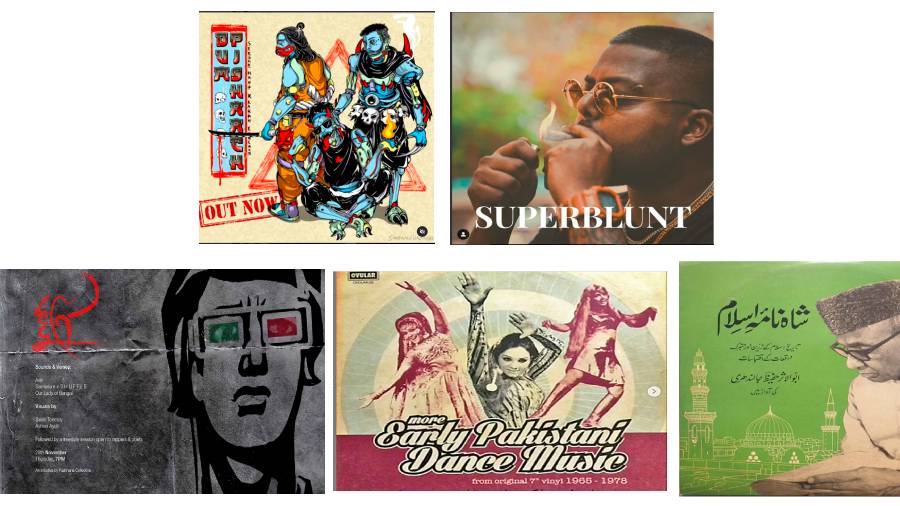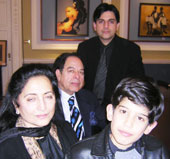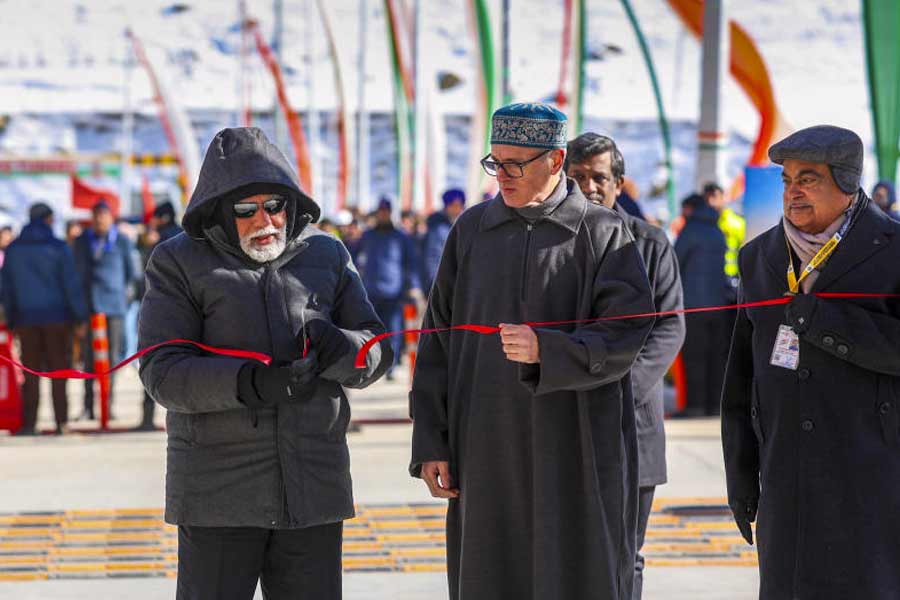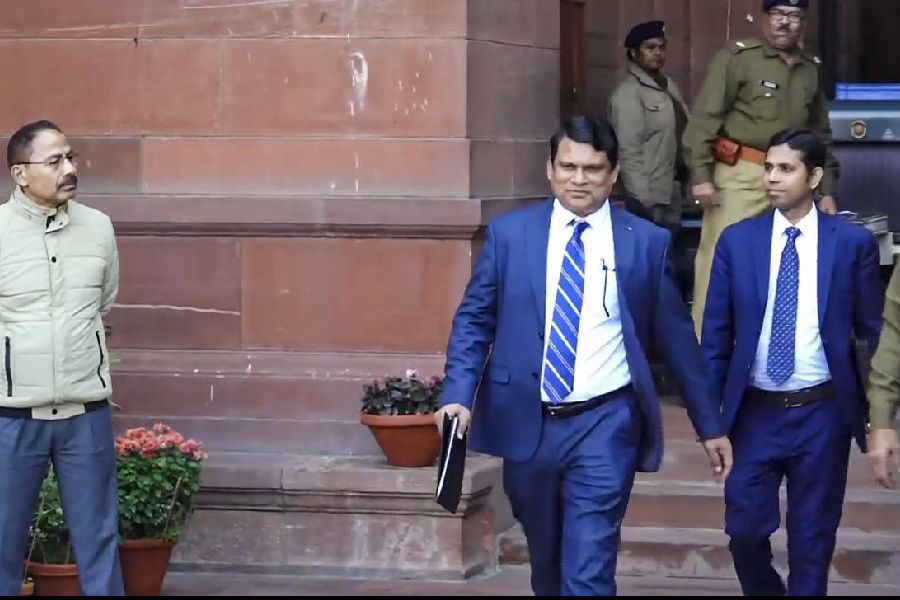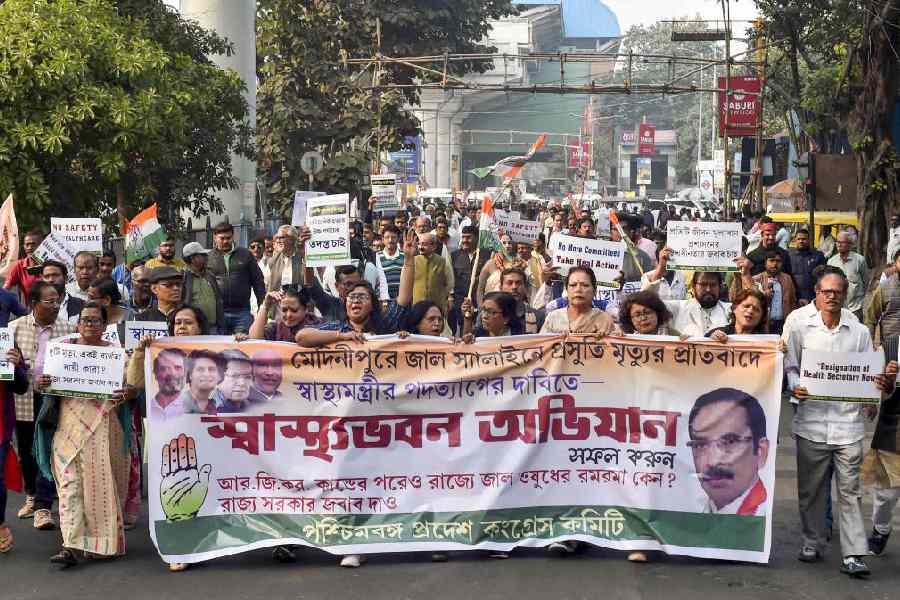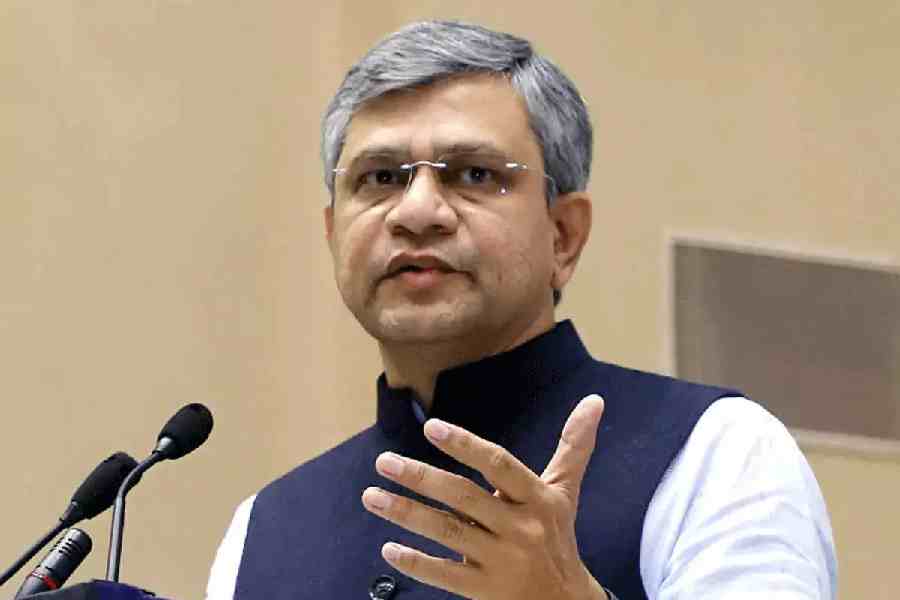Peshkash, launched in 2020, is an Instagram page with audio clips and photographs. Every click throws up a pleasant surprise. Click 1. A 1979 vinyl released by Shalimar Recording Company Limited and titled Music of Pakistan Bazm-e-Laila. For those who associate Runa Laila with only legendary Bengali numbers such as Istishaner Railgarita or Bondhu Tin Din Tor Barite Gelam, this is a mellifluous reminder that she might be identified as a Bangladeshi singer today but she became Runa Laila in Pakistan, and straddles many musical cultures and subcultures. One of the numbers in Bazm-e-Laila is Jab Se Gaya Hai Mera Bachpan. Run an Internet search and you will find the video of a svelte Runa barely out of her bachpan, hand on heart, swaying and crooning “Gulaaaabiiii”.
Peshkash founder Natasha Noorani tells The Telegraph that an offline library and archive is in the offing, and a website too so people of the world can have access to Pakistani music. She says, “In Pakistan’s music there has been a lot of erasure. The music from 1947 to the late 1970s has been erased because of institutions in Pakistan not maintaining archives or not allowing public access.”
Swipe. Swipe. Click. The page has a post about PIA inflight music (1970s), a vinyl of wedding songs put together by (Madras-born) archivist Lutfullah Khan, an early album of Nazia and Zoheb Hassan, and dance music from EMI stables. (EMI is the oldest and largest music company in Pakistan; it used to be The Gramophone Company of Pakistan.)
The audio clip of Nahid Akhtar’s Naughty Boy is just long enough for you to hear some funky instrumental followed by a throaty drawl of a “Oh you, come here, naughty boy”. Noorani, who assiduously cross-references, cites the UK-based label Finders Keepers as having sourced the compilation from EMI. On the Finders Keepers site you can hear the rest of the song. It goes, “Main pyaar tenu karaaa, duniya se main kyun daraaa…” The write-up reads — “Re-imagine some of the most action packed Bollywood productions (which Lollywooders actively did) then fire the make-up department, take away the special effects budget and then improvise. The lack of gloss on a dusty Pakistani mini-LP makes for truly experimental Eastern pop music.”
Says Noorani, “Peshkash is essentially to showcase that there is no single mono sound coming out of Pakistan.”
Azadi Records is an independent record label launched in 2017. It would not be a stretch to say it wears its heart on its homepage, which has a single visual — a cow. Click on the text — roster, releases, etc. — and there will appear a ticker that reads, “Hide your cattle…” Uday Kapur, journalist, DJ and co-founder of Azadi records, proffers, “This was in response to the beef ban. We were about to do a show and since most of us are foodies who also enjoy beef, I thought it’d be hilarious to have a slogan relating to all gaurakshaks having to hide their cattle just because we’re coming to town.” Underlying that cocky response is the label’s philosophy, one that Mo Joshi — once lead vocalist with one of UK’s first live hip-hop bands and the other founder of Azadi — calls “counter narrative”.
But first, a look at who they publish. There is Ahmer Javed from Kashmir singing about the abrogation of Article 370 in Inqalab released in October 2019. Then there is Prabh Deep, who is now well known in music circles as an MC, but when he debuted in 2017 with Azadi Records, he was a voice from Tilak Nagar singing about life as he knew it. “Class mera music/Sar te pag mai ha Sikh,” sings Prabh Deep in Class-Sikh. There is Swadesi and its “multi-lingual Mumbai-based crew”. Their trippy The Warli Revolt is against the felling of trees in Mumbai’s Aarey forest, and was made in collaboration with activist and Warli tribal chieftain Prakash Bhoir.
In 2020, Azadi Records received 2,500 demos. Joshi goes through the demo submissions, Kapur “fact checks” entries for authenticity. Kapur explains, “You hear a lot of political music that approaches the subject superficially, because they (artistes) haven’t lived that experience. The goal behind the music we put out is to reach out to artistes from within these affected communities.”
Joshi adds, “A lot of what we are doing now not only provides a counter narrative but it is also time stamping and documenting a version of history that may not be written by the victors.”
Sarah Elizabeth Chawla is project partner at Border Movement, a Goethe-Institut initiative and platform started in 2012 to primarily encourage interaction between the emerging electronic music communities of South Asia and Germany. Chawla talks about other initiatives from India — REProduce, a platform that hosts Listening Rooms around the country; boxout, which is a Delhi-based community-run radio showcasing alternative music; the femme collective Coven Code; the Bangalore-based label Consolidate. Sarah is co-founder of the online music magazine Wild City and the music festival Magnetic Fields and from what she says one gets a sense that there is an “alternative”, non-Bollywood music conversation and experiment happening in urban India.
The descriptor for Ghurni reads: “a series of listening sessions, where we want to explore how people listen to music collectively”. The initiator is a not-for-profit artistes’ collective of Bangladesh called Karkhana Collective. And the captain of the ship prefers to be identified as a femme and goes by the alias Maw, as in the Bengali alphabet.
Of all the three initiatives this is the one whose goal is most difficult to convey, conceptually, not least because it attempts to do more than one thing at once.
Maw, who is a trained DJ besides being a student of critical gender studies, talks in terms of “sonic experiences”, “sound installations”, “ambient soundscapes”, “bro culture”. The social media pages of Ghurni show posts about musical events — “free-style line-ups”; something dedicated to Techno from Tunisia’s Deena Abdel Wahed to Malaysia’s Tzusing; and even a Bangladeshi composer with training in Hindustani and Western classical music “his output utilising a hybrid of acoustics and electronic processes”.
Most listening sessions are free, some ticketed but reasonably priced, and post-pandemic almost all are online. Physical venues have names such as Jatra Biroti and Studio 6/6 and are non-five star spaces. And there are workshop announcements — live visual manipulation and projection mapping and so on.
All these efforts of Ghurni become easier to understand and appreciate if one understands and appreciates the social realities of Bangladesh, class, gender, night life et al. Maw and her colleagues want to alter the music listening experience, make it less elitist, less gendered. They also want to equip the musically inclined youth of Bangladesh with training in digital sound production.
Explains Maw, “Ghurni is not for the Bangladeshi music scene, which is diverse, complex and heterogenous… Electronic music remains very niche in Bangladesh and very inaccessible, because of how expensive it can be and also how it translates into raves, parties restricted to high-end places. Ghurni is about making that music accessible keeping in mind that everyone’s social and economic realities are not the same.”

